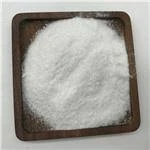Additives Used in Plastics Enhancing Performance and Functionality
Plastics have become an integral part of our daily lives, underpinning countless applications across various industries. However, pure plastic resin often falls short of the desired properties needed for specific applications. This is where additives come into play. Additives are substances incorporated into plastics to enhance their performance, durability, and appearance, making them more suitable for different uses.
There are several categories of additives used in the plastic manufacturing process, each serving distinct functions. One of the most common types is stabilizers, which are used to prevent degradation caused by heat, light, and oxygen exposure. For instance, UV stabilizers protect plastics from the harmful effects of ultraviolet radiation, extending the life of outdoor products like garden furniture and automobile parts.
Additives Used in Plastics Enhancing Performance and Functionality
Fillers are additives that improve the mechanical properties, reduce costs, and enhance specific characteristics of plastics. Fibers and powders, such as talc, calcium carbonate, and glass fibers, are often used as fillers. They not only provide strength and stiffness to the material but can also alter its thermal and electrical insulation properties. For example, adding glass fibers to plastics significantly increases their tensile strength, making them suitable for structural applications.
additives used in plastics

Furthermore, colorants and pigments play a crucial role in the aesthetics of plastic products. These additives allow for a wide range of colors and hues, enabling manufacturers to create visually appealing products. Masterbatches, which are concentrated mixtures of pigments and additives, are often used to achieve consistent coloration during the plastic manufacturing process.
In addition to these functional additives, flame retardants are critical in enhancing the safety of plastic products. These substances reduce the flammability of plastics, making them safer for use in electronics, construction materials, and automotive components. With increasing regulatory pressures and safety standards, the development of effective, non-toxic flame retardants has become a priority for the plastics industry.
Antioxidants are also essential additives that prevent oxidation during processing and throughout the product's life cycle. They help maintain the physical and mechanical properties of plastics, ensuring longevity and reliability. This is especially important in applications where exposure to harsh environments is expected.
However, the use of additives in plastics is not without controversy. As environmental concerns rise, the safety and ecological impact of certain additives, such as certain plasticizers and flame retardants, have come under scrutiny. The growing demand for greener alternatives has prompted research into bio-based additives and recyclable materials that can reduce the environmental footprint of plastic products.
In conclusion, additives play a vital role in enhancing the properties of plastics, allowing them to meet specific requirements across various applications. From improving flexibility and strength to providing color and flame resistance, these additives are essential for advancing plastic technology. As the industry continues to evolve, it is crucial to strike a balance between performance and environmental sustainability, paving the way for innovative solutions that can meet the demands of modern society while minimizing ecological impact. The future of plastics will heavily depend on how effectively we can develop and implement safer, more sustainable additives that align with global environmental goals.

